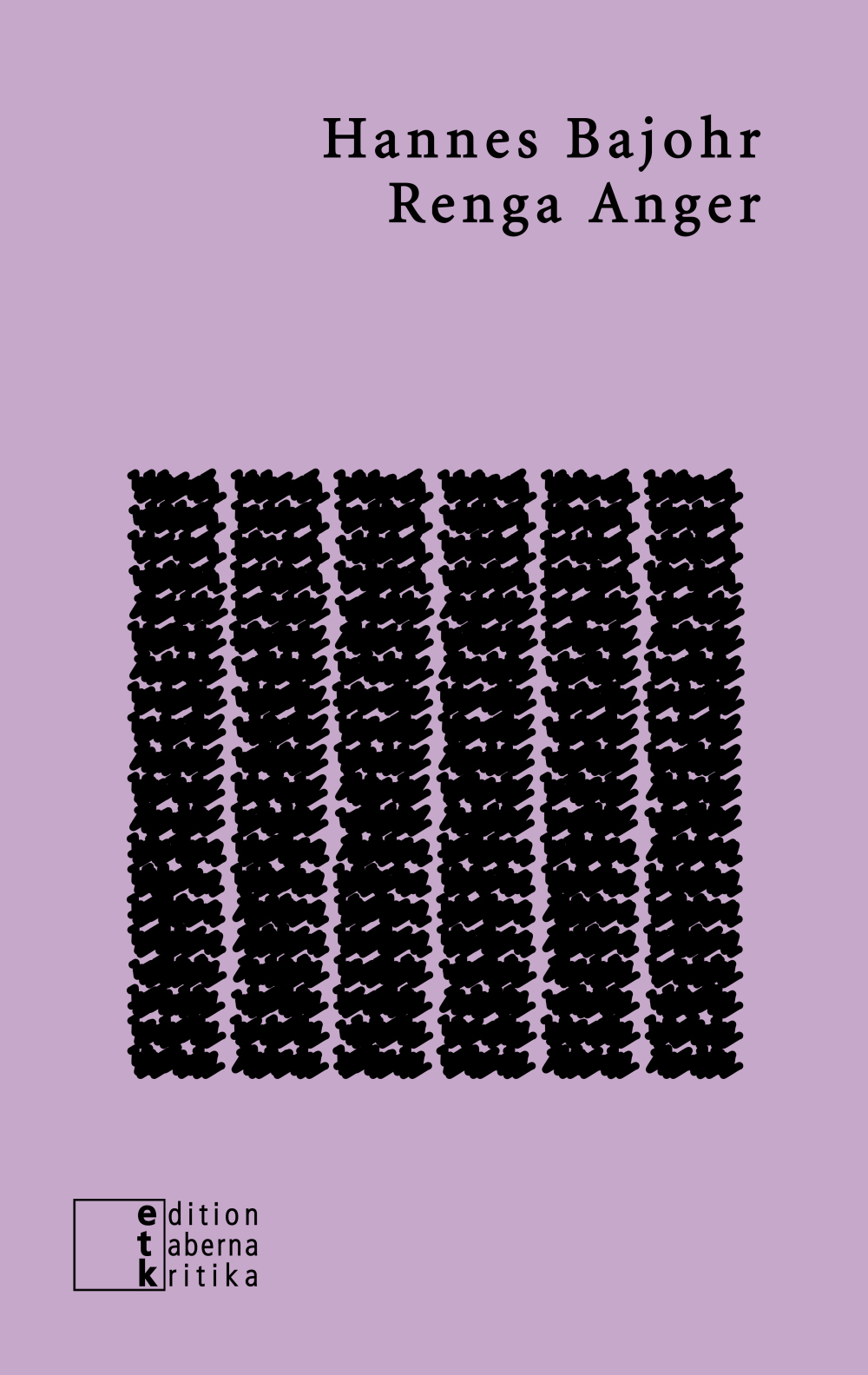Today, RENGA ANGER, my latest (German language) volume of poetry is published by edition taberna kritika, Bern. Anna Luhn was kind enough to write the afterword.
From the publisher’s website:
The story goes like this: In 1969, poets Octavio Paz, Jacques Roubaud, Edoardo Sanguineti and Charles Tomlinson meet in a Parisian hotel basement and write a four-language chain poem in five days. The resultant renga – based on the Japanese poetic form of this name – they then translate individually. Renga, like translation, is about connecting, about continuing with what is given. The transcriptions made by the authors themselves are quite conventional: They simply bring the polyglot of the collective poem back to monolingualism. Hannes Bajohr proposes a different strategy: the sideways translation – a continuation in and connection with oneself, which does not transfer anything anew, but instead reassembles what has been presented. RENGA ANGER is based on a script that rearranges the lines of the original and the translations, dynamically generating a plethora of new texts from the existing material. The volume begins as a remix of the original multilingual Renga; he progresses with the individual languages; and it ends with a brand new multilingual version, which now consists of all existing translations including the German one made by Eugen Helmlé in 1983 – a retranslation to the original state, a Renga 2022, an autotranslation.
